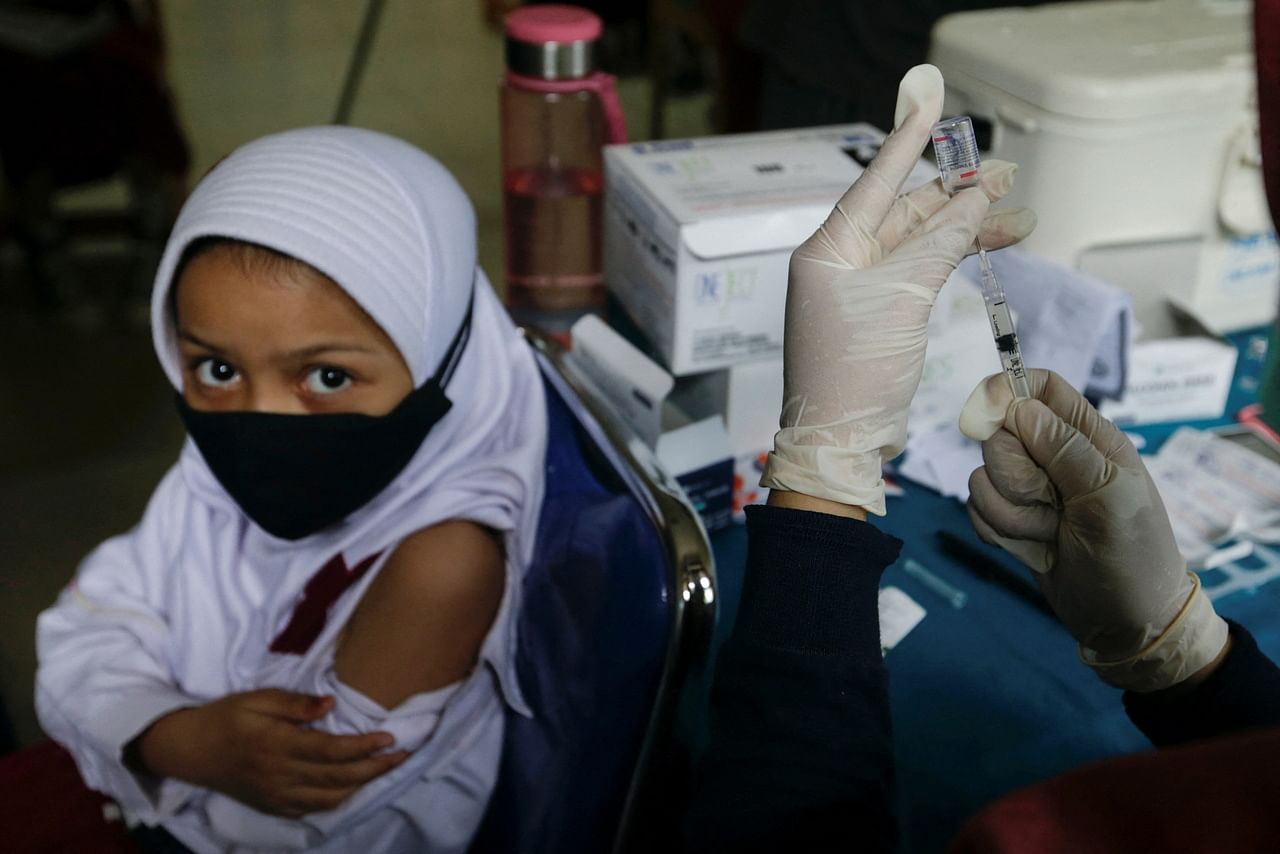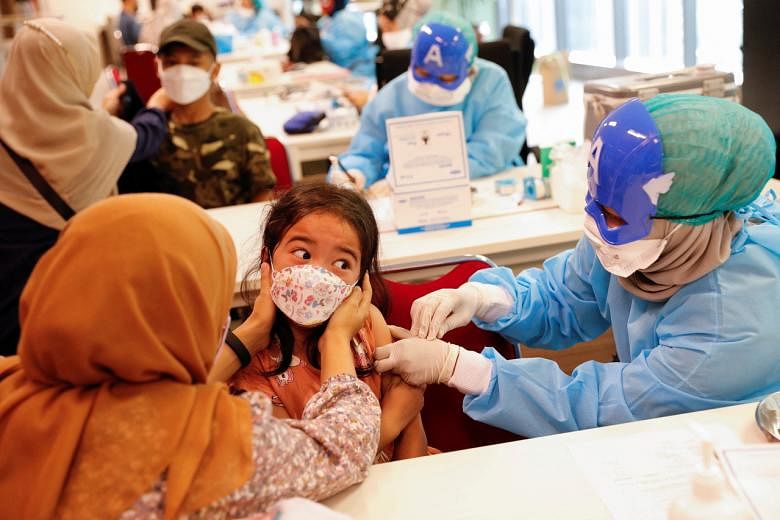JAKARTA - Indonesia has seen a significant rise in Covid-19 cases among children as the highly transmissible Omicron variant sweeps over the archipelago.
Child infections stood at 70 on Jan 3 before rising to 7,990 on Feb 7. The figure continued to surge to 14,000 by Feb 14 and 21,551 by Feb 21, according to the latest figures from the Indonesian Paediatric Society (IDAI).
The group gathers data every week from paediatricians across the country.
IDAI chairman Piprim Basarah Yanuarso said the number of cases among children in the third wave, largely caused by Omicron, had passed the tally during the peak of the second wave triggered by the Delta variant last July.
"There are many children who are asymptomatic. But will all children be safe and fine? Not really," he said in a recent webinar. "There are children who are asymptomatic and infect others, but there are also children with severe symptoms."
Dr Piprim added: "The number of fatalities is lower than in the past. But if we happen to be the parents or the grandfather of the deceased, the death is not merely numbers. It will become a big disaster if we lose our family members."
From early January to late February, there were 36 fatalities among infected children, who had other conditions such as anaemia, malnutrition and heart diseases, IDAI's data showed. The fatality rate - the number of those tested positive and died - was 0.07 per cent.
Although he did not suggest that the recent deaths were caused by Covid-19 unless a mortality audit is carried out, Dr Piprim noted that the virus could exacerbate the underlying conditions in children. "It's therefore essential that we protect children with co-morbidities amid the pandemic," he told The Straits Times.
Indonesia reported 26,347 new cases and 328 deaths on Friday (March 4). In all, the world's fourth most populous nation recorded 5.7 million infections and 149,596 fatalities.
The government expects its new daily cases to fall below 5,000 in April, as two-thirds of its 34 provinces, including Jakarta, West Java, East Java and Bali, have seen a decline in infections.
As at Thursday, the positivity rate - the number of those who are positive after using either polymerase chain reaction tests or antigen tests - remained at around 17 per cent. The figure is higher - around 40 per cent - if the antigen tests are excluded.
The World Health Organisation sets a positivity rate of 5 per cent as a benchmark to weigh whether the Covid-19 situation in a country is under control.
IDAI called for the government not to ease restrictions on face-to-face learning at schools quickly and recommended a region to have a positivity rate below 8 per cent as a key requirement for in-person learning.
Schools are also required to have a suitable environment for physical learning, such as having good ventilation in classrooms, and proper active case finding.
"The right of children to be healthy must be prioritised over their right to education," Dr Piprim told ST, adding that online learning was still highly recommended for those with co-morbidities.
Professor Aman Bhakti Pulungan, executive director of the International Paediatric Association, warned about the risks that can affect children after they recover, such as long-Covid and the multi-system inflammatory syndrome (MIS-C).
MIS-C often comes a few weeks after a mild infection or asymptomatic case and affects major organs, including the brain, hearts, kidneys and lungs.
Prof Aman hoped there would not be many MIS-C cases in March and April following a significant surge in cases in the previous months.
He pointed out the case of the United States, where a number of MIS-C cases occurred this month following a record tally of infections among children in January.
"Children with co-morbidities will be safe to attend in-person learning only if they have got three shots (of the Covid-19 vaccine)," he said.

As many as 20.3 million children, or 76.1 per cent, of the 12 to 17 age group, as well as 11.5 million children, or 43.5 per cent, of those aged six to 11 have been fully vaccinated, according to the Health Ministry.
Only 39,680 of those aged 12 to 17, or 0.15 per cent of the age group, have got the third jabs, while none aged six to 11 has taken their booster shots.
Epidemiologist Windhu Purnomo from Airlangga University said that although the overall Covid-19 cases in Indonesia had been on a downward trend, online learning should remain in place for most parts of the country, at least until the positivity rate falls below 15 per cent.
In regions where the number of infections is low, face-to-face lessons can be conducted but with strict protocols, he added.
"If a cluster emerges there, the school must be closed temporarily and reviewed. There should be a warning from the health agency on schools where clusters emerge," he said.
Since early January, clusters of infections have emerged at schools in some parts of the country, including Greater Jakarta, leading to temporary school closure.












